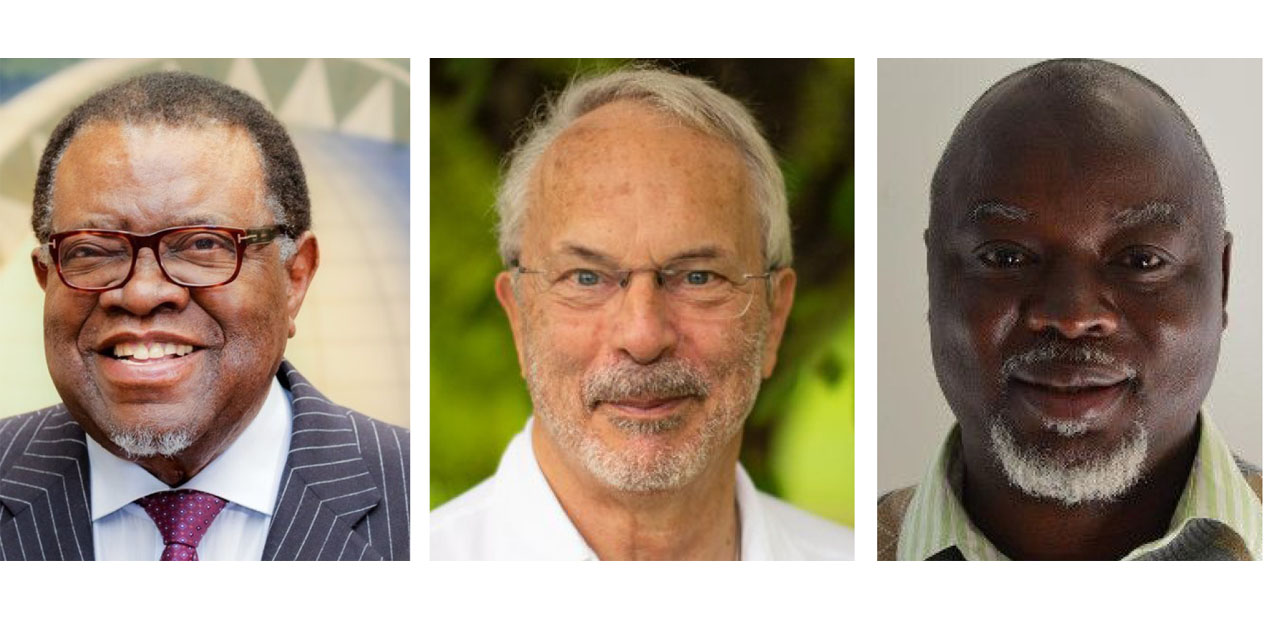Tujoromajo Kasuto
POLITICAL analysts had a number of comments about the implementation and overall pursuit of equal rights for all, with some claiming that the constitution has become a socio-economic straight jacket, 32 years after its adoption on February 9, 1990.
According to political analyst and historian Henning Melber, a constitution is the legislative framework for a society, and that in democracies guided by the rule of law, such as Namibia, the constitution is never set in stone, but must reflect a value system that is subject to change.
“As a normative framework, constitutions fall short of day-to-day political and economic recipes, as these remain the domain of parties and governments and are part of the legal framework, which supplements a constitution, through the adoption by legislators (but cannot violate constitutional principles),” says Melber.
In the case of the Namibian Constitution, he emphasised that civil liberties are for the most part unchangeable.
This includes, among other things, the abolition of the death penalty and the protection of private property, as well as the requirement that no expropriation be made without fair compensation.
Melber goes on to say that policies cannot change this part of the Constitution, and thus their socio-economic strategies, particularly
in terms of land policy, restitution, and land redistribution, must adhere to this principle when ownership is transferred.
To that end, he observed that the Namibian Constitution, is in some ways, a socio-economic straight jacket, restraining and confining policies aimed at redistribution of wealth and land.
“The Namibian Constitution guarantees a high level of civil liberties. However, as previously stated, it must adapt to changing values in order to remain consistent with the scope of civil liberties. In Namibia, for example, this would imply that the right to freely choose same-sex relationships and partnerships should be added to civil liberties and removed from laws as punishable, if based on consent among adults,” he adds.
Furthermore, the historian emphasizes that this would allow legal marriages and parenthood, as the South African Constitution, which was adopted five years after Namibia had already included such civil liberties, which have increasingly become a respected way of life in many societies and are anchored within the human rights codex.
Above all, he agrees that the values enshrined in a Constitution should be known and internalized by members of society, from politicians to ordinary citizens. This means that constitutional values and principles must be popularized and incorporated into public awareness campaigns aimed at empowering people. He wants citizens to be aware of their rights in order to assert them, and that politicians and civil servants demonstrate loyalty to these values to transform the Constitution into a living document of social relevance.
Political analyst Ndumba Kamwanyah agrees with Melber, stating that the constitution is a vital document that should not be treated as static because new social and economic policies necessitate new laws.
He goes on to say that enhancements are needed because we as a nation are dealing with land issues, and the constitution contains a clause
that makes it difficult for people who have been evicted from their land to reclaim it.
He suggests that this be looked into to see how it can be balanced, particularly for those who were evicted from their land as a result of colonial policies, and how access to land can be accommodated.
Meanwhile, in a statement issued to commemorate the day, President Hage Geingob stated that the Constitution is “A Living Document,” and
on this historic day, recalled that the difficult journey “we have travelled to be where we are today.”
The president reminisces the fact that Namibians, united in their diversity and aware of their right to be free in their own land, fought valiantly against oppression in order to determine their own destiny as a free people. Many people paid the ultimate price in pursuit of that goal of liberty, he reminded the nation.
As a result, he asserts that the adoption of the Constitution on 9 February 1990 was a significant milestone in the nation’s quest for
self-determination because it laid the groundwork for independence and the establishment of constitutional democracy on 21 March 1990.
In part, he adds, this is why the Constitution, which is the foundation of the rule of law, provides for the separation of powers, which allows the Executive, Legislature, and Judiciary to exercise their respective powers independently.
“I have always emphasized the Constitution as the Supreme Law and as a living document, which must be internalised by each and every citizen in the pursuit of full enjoyment of their rights and for the benefit of social cohesion and nation building,” says Geingob.
In that vein, the president maintains that it is the duty of all Namibians to act as promoters and safeguards of the democratic values of liberty, unity, justice and solidarity, which are the raison d’être




